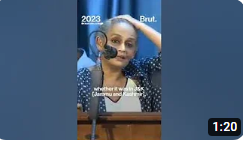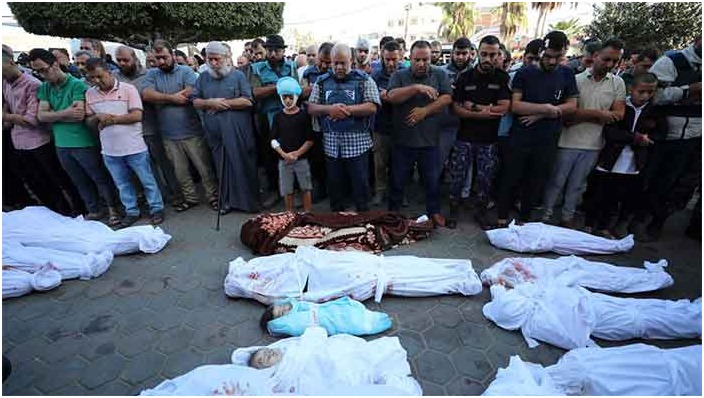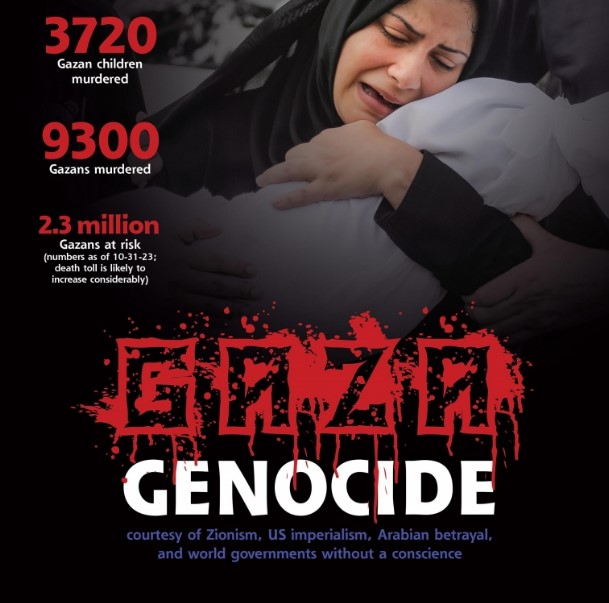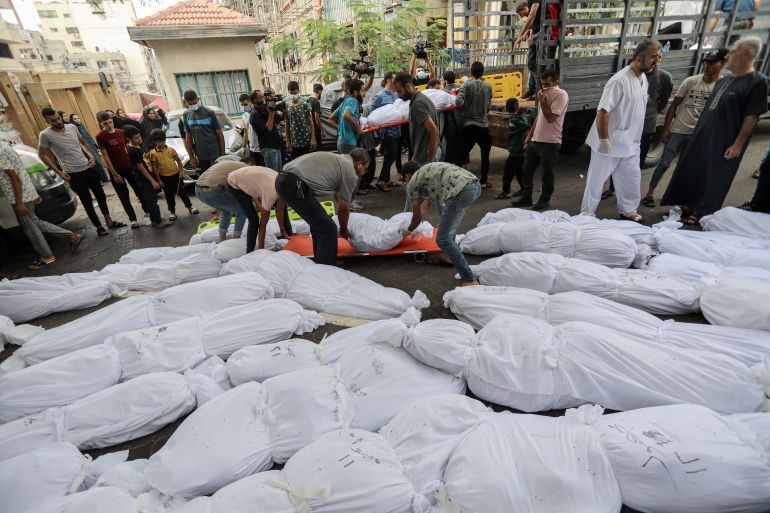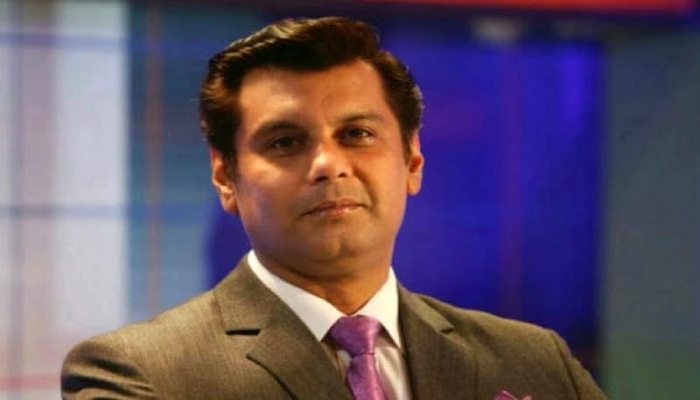Indian Government, Modi and RSS
0 comments | by Siddharth Varadarajan

What makes the axis between the government and the RSS so problematic is not just its extra-constitutionality but the sheer incompatibility of the RSS and its ideology with a democratic, inclusive polity and society.
A bizarre political spectacle took place in Delhi this week that no amount of sophistry can square with the principles of a modern democratic republic.
A ‘cultural’ organisation known as the Rashtriya Swayamsevak Sangh held a conclave for which it summoned top ministers of the Narendra Modi government to present themselves and provide an account of the official work they have been doing over the past 15 months. Among those who turned up was the Prime Minister himself, as well as the Defence Minister and the Home Minister.
This axis between the government and the RSS is unhealthy for the obvious reason that it represents a classic case of what con artists call ‘bait and switch’.
Millions of men and women, especially the young, voted in 2014 for Modi and his promises of development and not for a shadowy, all-male, all-Hindu organisation that has never presented itself for election in the 90-odd years it has been in existence. Modi asked for votes in the name of vikas and not in the name of Hindutva, but the RSS clearly has a lot more on its mind.
Voters are entitled to ask who these secretive little men are who appear to be wielding so much clout from behind the scenes. What is the extent of their hold over the government? What is the nature of the remote control they clasp so firmly in their hands? What is the agenda they want the government to pursue?
During the Manmohan Singh period, the Bharatiya Janata Party went to town over the “extra-constitutional” authority Congress president Sonia Gandhi wielded in the United Progressive Alliance government. They attacked her hand-picked team of associates – the National Advisory Council – for involving itself in matters of policy. The NAC was at least established through an executive order. Where does the RSS draw its sanction from? The September 3-4 forum is arguably the most visible association between the government and the Sangh Parivar we have seen to date but we know from the functioning of various ministers and ministries that RSS functionaries are “consulted” on an almost continuous basis.
What makes this axis especially problematic is not just its extra-constitutionality but the sheer incompatibility of the RSS and its ideology with a democratic, inclusive polity and society.
Consider the following, for example. The RSS organ, Organiser, carries an article this week on the census and religion by Pravin Togadia, the working president of the Vishwa Hindu Parishad. The article is vicious and poisonous – even by the toxic standards of the Organiser. Togadia indulges in the usual fear-mongering about Hindus going extinct if urgent steps are not taken to curb the growth of the Muslim population in India. (That this is utter rubbish has been well demonstrated here, here and here.) Among the steps he proposes to fight this so-called ‘population jihad’ is to ban Muslims from having more than two children:
“[The government] must also implement the two-child norm irrespective of the political pressures. Rather than subsidising each birth of a Muslim kid, it is must that after two children, there has to be the strictest curb. Perhaps a punishable criminal offence and stopping the ration, jobs, and educational facilities will streamline the population facilitation towards better development.”
What Togadia is advocating through the pages of the RSS newspaper – the imposition of “measures intended to prevent births within [a national, ethnical, racial or religious] group” – is nothing less than an act of genocide as per Article 2(c) of the Genocide Convention, to which India is a signatory.
When Prime Minister Narendra Modi and his senior ministers flock to an event organised by the RSS – an organisation that publishes articles advocating genocide of a section of the Indian people – what does this tell us about their own political wisdom and moral compass? Can one think of a single example from a modern democracy in which elected leaders will allow themselves to be seen in the company of a ‘cultural’ organisation that publishes and promotes such incendiary filth?
Is the Prime Minister not embarrassed to associate himself with such an organisation? Or does he accept the RSS division of Indians into ‘Bharatiya Religionists’ – i.e. Hindus, Sikhs, Jain and Buddhists – on the one side, and Muslims and Christians on the other, and share the fears the Sangh clearly has that Hindus will soon be reduced to a minority?
We know that in his earlier avatar, Modi was not averse to a bit of a demographic scaremongering himself.
Back in 2002, in the run up to the Gujarat assembly elections that year, Modi, as Chief Minister went to the temple town of Becharaji in Mehsana district for a rally. In his speech, he made fun of Muslims living in relief camps – they were there, ironically, as a result of the communal violence he failed to prevent – and made a crude, inflammatory reference to Muslim men having four wives and producing 25 children:
“When we allocate funds for Becharaji, [the Congress] do not like it. And if we bring Narmada waters in the month of Shravan, then too they say they dislike it. So what should we do? Do we go and run relief camps? Should we open child-producing centres?
“We want to firmly implement family planning. Hum paanch, humare pachees (We five, our 25) (laughs). Who will benefit from this development? Is family planning not necessary in Gujarat? Where does religion come in its way? Where does community come in its way?
“The population is rising in Gujarat, money isn’t reaching the poor? What’s the reason? They make a beeline; fix cycle punctures (Audience laughs).”
This speech was delivered on September 9, 2002. When reports appeared in Delhi and the National Commission for Minorities (NCM) asked the Gujarat government for a transcript, it was told that there was no record. However, an upright police officer by the name of RB Sreekumar, who was ADGP (Intelligence) at the time, obtained a transcript and sent it on to the NCM. He paid for his ‘disloyalty’ with a transfer; later, false cases were foisted upon him. In a curious coincidence, the Gujarat High Court on Friday cleared the decks for Sreekumar’s prosecution by the Gujarat government on charges that include, you guessed it, leaking sensitive information! But that’s a story for another day.
Since every saint has a past and every sinner a future, the electorate in 2014 made a tactical decision to ignore whatever Modi did or did not do in 2002. But that wilful act of mass amnesia was underwritten by an implicit social contract – give us economic growth and jobs, and do not let India be dragged back to the divisiveness and violence of the previous decade. That is why the election campaign Modi fought, with minor exceptions here and there, stuck closely to the rhetoric of development. The RSS agenda and mentality – which people recognise as a recipe for violence – was kept tightly under wraps. As soon as the results were out, of course, the Sangh Parivar emerged out of the woodwork. Since then, it has been doing its best to sow divisions under one pretext or the other – love jihad, conversions, ghar wapsi, the beef ban, and now ‘population jihad’.
The Prime Minister hates to talk about the past and who can fault him for that. But if he makes the mistake of allowing his government to be freighted with the agenda of the RSS, he will drag not only himself and his government down but the country too – into the quicksand of bigotry, division and strife.
Siddharth Varadarajan is an Indian American journalist, editor, and academic. He is the former editor of The Hindu, one of India's leading English language newspapers
